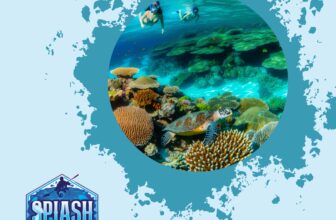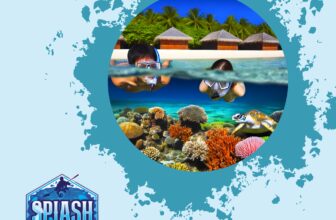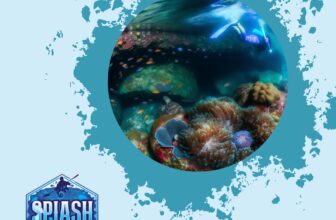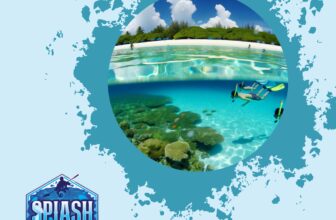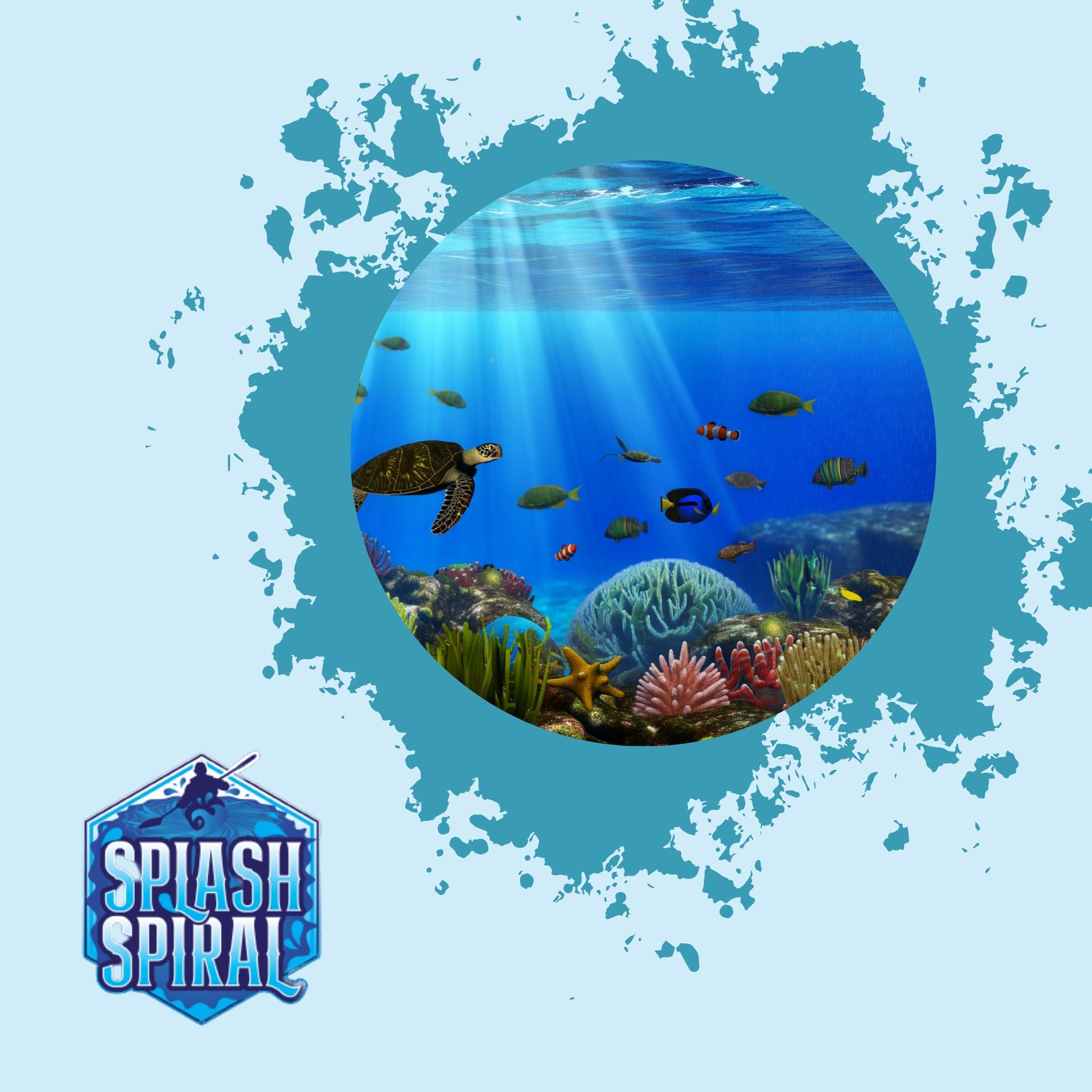
Snorkeling in the Caribbean can be one of the most rewarding and exciting adventures you embark on. The crystal-clear waters, vibrant marine life, and breathtaking coral reefs make for an unforgettable experience. However, jumping into the water without some essential tips can turn an amazing trip into a risky endeavor. So, whether you’re a newbie or need a refresher, here are some straightforward, practical tips to make your Caribbean snorkeling adventure both safe and memorable.
Understanding the Basics of Snorkeling
Snorkeling Gear Essentials:
When it comes to snorkeling, the right gear can make a world of difference. Here are the essentials:
-
Mask: Your mask is your window to the underwater world. Make sure it fits snugly to avoid water seeping in and fogging it up. A good tip is to place it on your face without using the strap and breathe in through your nose; if it sticks, you've got a good fit.
-
Snorkel: Choose a snorkel with a comfortable mouthpiece. You’ll be spending a lot of time with it in your mouth, so comfort is key. Consider a snorkel with a purge valve to make clearing water easier and a splash guard to keep the water out in choppy conditions.
-
Fins: Fins help you glide through the water with less effort. Make sure they fit properly—not too tight to cause discomfort, and not too loose that they might slip off. Comfort and maneuverability will improve your overall experience.
How to Use Your Gear:
Getting familiar with your equipment before you hit the water can save you from unexpected issues. Here's what you need to know:
-
Practice Breathing Through Your Snorkel: Before diving in, practice breathing through your snorkel on dry land. Get used to the feel and practice keeping the snorkel top out of water.
-
Mask Sealing: To prevent your mask from fogging, ensure it's properly sealed. One trick is to rub a little bit of non-greasy spit on the inside and rinse it off before putting it on. Anti-fog sprays can also help.
-
Swimming with Fins: Swimming with fins can feel different than regular swimming. Practice in a pool or shallow water to get used to the propulsion and how to maneuver. Use slow, gentle kicks to conserve energy and avoid splashes.
Understanding these basics will set the foundation for an enjoyable and trouble-free snorkeling experience. Get your gear right, practice on dry land or in shallow water, and you'll be more confident and comfortable when it's time to explore the vibrant underwater world of the Caribbean.
Safety Snorkeling Tips
Buddy System
- Pair Up: Always snorkel with a buddy. Sharing the experience is more enjoyable and essential for safety.
- Assistance: In case of any unexpected situation—a cramp, fatigue, or disorientation—your partner can assist immediately.
Stay Calm
- Avoid Panic: Panicking underwater can escalate minor issues into major problems.
- Control: If you encounter something unexpected, such as a strong current or an unfamiliar marine creature, take a deep breath, stay calm, and slowly navigate back to safer, shallower waters.
Know Your Limits
- Self-Awareness: Recognize your swimming abilities and don't push beyond them.
- Stop Early: If you're getting tired or uncomfortable, it's okay to call it a day. Overexertion can lead to accidents.
Weather Check
- Forecast: Before heading out, always check the local weather forecast and sea conditions.
- Safety First: Rough seas and bad weather can create dangerous snorkeling conditions. If in doubt, postpone your adventure for another day.
Hydration
- Stay Hydrated: Snorkeling can be physically demanding, especially under the tropical sun.
- Water Intake: Drink plenty of water before and after your snorkeling session. Dehydration can cause fatigue and impair your ability to snorkel safely.
By following these safety tips, you'll be well-prepared to enjoy the stunning underwater world of the Caribbean without unnecessary risks.
Marine Life Etiquette
Look, Don’t Touch
When snorkeling, it's important to remember that you are a guest in the marine environment. This means observing marine creatures without trying to touch or grab them. Your presence should be as minimally invasive as possible to ensure that the habitats remain pristine for both the creatures that live there and future snorkelers.
Don’t Feed Marine Life
While it might seem tempting to attract fish by feeding them, this practice can have harmful effects on their natural behavior. Feeding fish disrupts their feeding patterns and can make them reliant on human interaction, which is not sustainable for their long-term well-being.
Maintain Distance
Always maintain a respectful distance from marine animals. Getting too close can stress them out and, in some cases, provoke defensive behavior. Be especially cautious around larger marine creatures like rays or reef sharks, and give them plenty of space to move freely.
Conclusion
By following these simple marine life etiquette tips, you not only protect yourself but also play a crucial role in conserving the beautiful underwater world of the Caribbean. Happy snorkeling!
Coral Protection
When snorkeling amidst the stunning coral reefs of the Caribbean, remember that your actions have consequences on this delicate ecosystem. Here are some key tips for preserving these natural wonders so they can be enjoyed for generations to come.
Key Tips for Preserving Coral Reefs
-
No Touching:
Corals are incredibly fragile. Even a light touch can cause damage and impede their growth. Let your eyes do the exploring instead of your hands. -
Anchor Respectfully:
If you're heading out on a boat, make sure the anchor is deployed in a sandy area rather than on the reef itself. Anchoring on corals can crush and kill these vital marine structures. -
Use Reef-Safe Sunscreen:
Traditional sunscreens contain chemicals like oxybenzone and octinoxate that are harmful to coral reefs. Switch to reef-safe options to keep the waters pristine and the corals healthy. Look for sunscreens labeled as "reef-safe" or "ocean-friendly."
Following these simple yet impactful measures ensures that you're doing your part to protect the vibrant coral ecosystems. Remember, a conscientious snorkeler leaves no trace behind. Enjoy the beauty of the reefs while helping to preserve them for future adventurers.
Reef Snorkeling Techniques
When snorkeling over a reef, it’s important to employ specific techniques to protect both yourself and the marine environment. Here are some simple yet crucial methods to enhance your snorkeling experience:
-
Efficient Swimming: Use slow, deliberate strokes to avoid stirring up sediments which can cloud the water and harm coral. Gentle movements not only give you a better view but also minimize the impact on the marine life around you.
-
Buoyancy Control: Maintaining neutral buoyancy is key. It helps you float without touching or damaging the reef. Practice floating effortlessly, keeping your body steady to hover over the corals.
-
Stay Horizontal: Keep your body parallel to the ocean floor. This posture reduces the likelihood of accidentally touching delicate corals with your fins or body. Being horizontal also makes it easier to glide through the water, conserving energy and reducing drag.
These techniques are straightforward but essential. Mastering them will make your snorkeling experience in the Caribbean safer and more enjoyable, while also ensuring you leave the stunning underwater world as pristine as you found it.
Additional Snorkeling Tips
Let’s get into some extra advice that can seriously elevate your snorkeling game.
-
Get the Right Fit: This one’s crucial. Your mask, snorkel, and fins should feel like a natural extension of your body. Avoid gear that's too tight or too loose. A well-fitting mask stays sealed without squeezing your face, and comfortable fins should allow some movement without causing blisters.
-
Practice in Shallow Waters: Before you venture into deeper waters, spend some time practicing in the shallows. This gives you a chance to adjust to breathing through the snorkel, clearing your mask, and using your fins efficiently. It’s a safe space to troubleshoot any gear issues.
-
Stay Relaxed: It's easy to get excited, but anxiety can lead to panic, and that’s a quick way to ruin your day. Take slow, steady breaths to keep calm. The more relaxed you are, the easier it’ll be to float and move with minimal effort.
Making sure you have the right fit, practicing in shallow waters, and staying relaxed can make your snorkeling trip a breeze. These simple steps can turn a novice experience into a pro-level adventure. Keep these tips in mind, gear up correctly, and you'll be ready to dive into an unforgettable underwater world.
Top Caribbean Snorkeling Spots
1. Grand Cayman, Cayman Islands
- Spot: Stingray City
- This hotspot is renowned for its shallow sandbars where southern stingrays gather in abundance. It's perfect for beginners due to its calm waters. Remember to keep your distance and respect the friendly rays.
2. Bonaire, Dutch Caribbean
- Spot: Klein Bonaire
- A small, uninhabited island that's part of the Bonaire National Marine Park. The easy shore access and pristine reefs make it a snorkel heaven. The shallow waters teem with parrotfish, angelfish, and vibrant coral.
3. St. John, U.S. Virgin Islands
- Spot: Trunk Bay
- Known for its underwater snorkeling trail marked with signs providing information on marine life. The serene, clear waters allow you to see a colorful array of fish and corals up close.
4. Belize Barrier Reef, Belize
- Spot: Hol Chan Marine Reserve
- Just off Ambergris Caye, this reserve is part of the second-largest barrier reef system in the world. You'll float above intricate coral formations and swim alongside nurse sharks and rays.
5. Turks and Caicos Islands
- Spot: Smith's Reef
- Located in Providenciales, this reef features an extensive variety of marine life including sea turtles, stingrays, and an array of coral species. The snorkel-friendly shallow depths make it ideal for beginners.
6. Exumas, Bahamas
- **Spot: Thunderball Grotto**
- Popularized by James Bond movies, this cave system offers an exciting snorkeling adventure with beams of light illuminating the underwater scenery. Expect to see exotic species like Angelfish and Sergeant Majors.
Each of these spots offers unique marine environments and experiences. Remember, while exploring these underwater paradises, always adhere to safety tips and respect marine life etiquette. Enjoy every moment in the water!
Conclusion
Snorkeling in the Caribbean offers an unparalleled adventure beneath the waves. By following these practical tips on safety, marine life etiquette, coral protection, and effective snorkeling techniques, you can ensure a safe and truly memorable experience. Gear up, stay calm, and enjoy the vibrant underwater world the Caribbean has to offer. Happy snorkeling!



